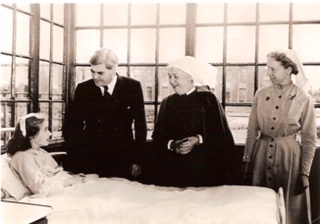Dissenting from the Old Lie
Forceswatch Comment
If you could hear, at every jolt, the blood
Come gargling from the froth-corrupted lungs,
Obscene as cancer, bitter as the cud
Of vile, incurable sores on innocent tongues,
My friend, you would not tell with such high zest
To children ardent for some desperate glory,
The old Lie; Dulce et Decorum est
Pro patria mori.
From Dulce et Decorum Est by Wilfred Owen
I’m not wearing a poppy this year. I think it is shifting from a symbol remembering war’s horror, to a symbol of war-hungry nationalism.
— Matt Haig (@matthaig1) November 3, 2017
Matt Haig, an author perhaps best known for his books Reasons to Stay Alive and How to stop time and his work to support people with depression, recently entered the annual Great British Poppy Debate, saying:
‘I’m not wearing a poppy this year. I think it is shifting from a symbol remembering war’s horror, to a symbol of war-hungry nationalism.’
Scrolling down his Twitter feed, you can see some of the vitriol directed towards him and those who are making the same choice. Most common were remarks along these lines: ‘People died for your freedom, your rights and your family’s rights (you should wear a red poppy out of respect and gratitude to them).’
Others went further, calling him a ‘vile man’ with a ‘warped mind’ who should leave the country, and calling for people to boycott his books. Matt said that he has never been ‘booed’ for anything more than this
Some red poppy dissenters choose to wear a different symbol of remembrance instead – the white poppy – but are almost unanimously attacked for this when interviewed on radio and television shows. Red poppy dissenters, whether they replace it with a different symbol or not, are perceived as cold, ungrateful, unempathetic people, and simultaneously lily-livered ‘snowflakes’ who simply cannot understand bravery and sacrifice.
People respond so aggressively because of a perceived disrespect towards those who have died fighting for Britain – usually in 20th century wars, but also in more recent and ongoing wars.
But if you listen to Matt and many other dissenters like him, they are in fact remembering in a thoughtful, empathic way, and displaying courage in their willingness to endure being attacked, as well as heartfelt respect towards the memory of those who have died. Matt spoke of his Jewish great-grandmother who ‘was nearly murdered by Nazis’ and his great-grandfather who ‘saved lives at Dunkirk.’
For Matt, the red poppy is not the most respectful or fitting way to remember them.
Like many others, he has grown uncomfortable with the way in which red poppy remembrance portrays war, death and destruction.
For some, the Cenotaph’s ‘glorious dead’, the ‘died for our freedom’ rhetoric and the red poppy displays that rival Christmas decorations, seem to embody Wilfred Owen’s war-hungry ‘old Lie’ of ‘desperate glory.’
For others, the British Legion’s acceptance of arms company sponsorship, particularly given the arms race that fuelled the first world war and more recently the ongoing war waged on Yemen, is both ironic and distasteful.
Many consider the lumping together of all wars in which Britain has fought and is fighting into one heroic quest for freedom to be not only inappropriate but also ahistorical. Did the Triple Entente fight the Triple Alliance for freedom, and if so, whose freedom and to what end? What about Iraq? Afghanistan? Are we being asked to ‘rethink Remembrance’ to support those who fought in more recent wars or to support the armed forces as a whole?
And why does the British Legion state that the red poppy symbolises remembrance for British fighters alone, not also for civilians or those on other sides? ( ‘The Legion advocates a specific type of Remembrance connected to the British Armed Forces, those who were killed, those who fought with them and alongside them.’ )
The Peace Pledge Union say the white poppy remembers all those who are victims of war, on all sides.
This statement has led to the Peace Pledge Union being ludicrously derided as remembering with sorrow the deaths of our current ultimate enemy, ISIS. Not the heaps of ash left by Nagasaki, not the fleeing refugees bombed escaping Dresden, not Yemeni children dying today of cholera and starvation, not the German soldiers who played football with British troops on Christmas Day one hundred years ago.
Somehow, believing that war has many victims in many countries, and causes tragedy beyond the loss of British soldiers, has become an unpatriotic, terrorist-sympathising sentiment.
Wearing the red poppy has become the only acceptable way of remembering, and synonymous with being a respectable human being. Those who dissent are othered and marginalised as a homogenous group of traitors, their views dismissed outright.
Every year, the fury levied at those who critique or refuse the red poppy obscures the complexity and spectrum of views such dissenters open up.
Yet the people dissenting from red poppy remembrance are diverse and their reasons complex. Not all those who are concerned that remembrance has become infused by nationalism and militarism are pacifist or ‘anti-war.’ Some are of course, perhaps for faith reasons. Others believe that sometimes violence is a necessary evil, but all too often begets further violence and is wrongly motivated.
Some wear both a red poppy and a white poppy, some wear a white poppy and donate to peacebuilding organisations or veterans’ charities. Some white poppy wearers or red poppy dissenters are themselves veterans.
The general sentiment of red poppy dissenters is not at all that every red poppy wearer is a war hungry nationalist. Indeed the thoughts of red poppy wearers on remembrance may be very similar to those of red poppy dissenters. But the official remembrance narrative commodified in the red poppy represents a collective memory that many disagree with, and therefore dissenters want to both illuminate this, and remember in a way they find to be more fitting.
Many wrestle with how to respond to the brutality of the last century, and do not feel they can fit their response honestly into the spectacle of red poppy remembrance splashed across the country.
Every year, the fury levied at those who critique or refuse the red poppy obscures the complexity and spectrum of views such dissenters open up. What is lost in this explosion of vitriol and misunderstanding is the opportunity to allow us, as empathic human beings, to be open to divergent viewpoints, to think honestly about wars and to discuss their causes.
See more: remembrance,
Like what you read?
> Sign up for our newsletter or blog notifications
> Support our work – from just £2 a month









